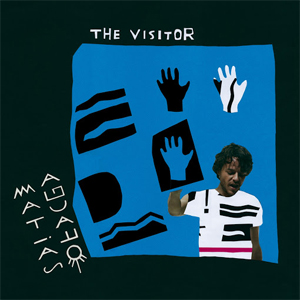Matias Aguayo The Visitor
It’s hard to confuse a Matias Aguayo record for anything else; the Chilean-born German transplant […]

It’s hard to confuse a Matias Aguayo record for anything else; the Chilean-born German transplant has a way of infusing everything he does with a uniquely playful stamp. As to be expected, The Visitor continues to find Aguayo boldly following a musical adventure that’s very much his own, resulting in an album that can be bizarre but also inexplicably invigorating. Though it finds him making little movement towards accessibility, The Visitor will no doubt prove rewarding to those already invested in Aguayo’s long and fruitful production career, and those unafraid to follow him to the outer fringes of inherently fun dance music.
Despite what one makes of his music, it’s hard to argue with Aguayo’s dedication to his creative inclinations. Four years ago on the Ay Ay Ay LP, he set out to create an album of club music using almost exclusively his own voice as the record’s sole instrument. Concepts like this may not yield tunes begging for consistent club rotation, but Aguayo’s value as an artist largely lies in his ability to exist independent of particular contemporary trends, as well as his talent for tapping into the lively essence which lies at the base of adventurous dance music. The Visitor comes with less of a stated sonic concept than Aguayo’s past album, but this LP is still very much the result of a vision seen to its end. Compiled from recordings laid down in a number of locales and featuring a handful of unnamed collaborative ventures—we do know that Scott Monteith (a.k.a. Deadbeat) helmed the record’s mixdown—the album takes shape as a nomadic voyage through Aguayo’s creative influences, with its sounds ranging from psychedelic Latin marches to loosely percussive house tunes and eerie dance numbers with electro-punk undertones. Just to drive the point home, Aguayo can’t even stick to one language for very long on The Visitor. Still, the record’s emphasis on rhythmic structures and disarmingly simple vocal performances provides a needed base of consistency throughout.
The Visitor is at its best when Aguayo lightens the mood. Opener “Rrrrr”—a cheeky tune which focuses on the Spanish double-“r” roll that so many Anglos struggle with—is effortlessly fun. “Una Fiesta Diferente,” “El Sucu Tucu,” and “Las Cruces” are similarly enjoyable, with their rhythmic thrust hitting instantly and holding steady so as to allow Aguayo’s vocal to move freely. Often, it’s nearly impossible to understand what exactly Aguayo is chant-singing, not only because he switches back and forth between Spanish and English without warning, but also due to the fact that he does little to make his voice stick out above the fray; rather than making it the focus of any particular track, Aguayo instead simply puts it to use as an additional melodic (and sometimes rhythmic) instrument.
It almost goes without saying that the The Visitor is not for everyone, but even for those who are willing to trust Aguayo as their musical spirit guide, tracks like “Dear Inspector” and closing effort “A Certain Spirit” can be hard to wrap one’s head around. Perhaps this is the price of the producer’s musical bravery. In an electronic-music sphere that can feel increasingly overcrowded with names and outfits that cling to easily interchangeable sonic identities, it’s hard to knock Aguayo’s unique spirit, and the boldness with which that shines through on this LP is certainly captivating in its own right. Aguayo may be off the dance-music world’s beaten path, but what he’s found down that road continues to prove worthwhile.

